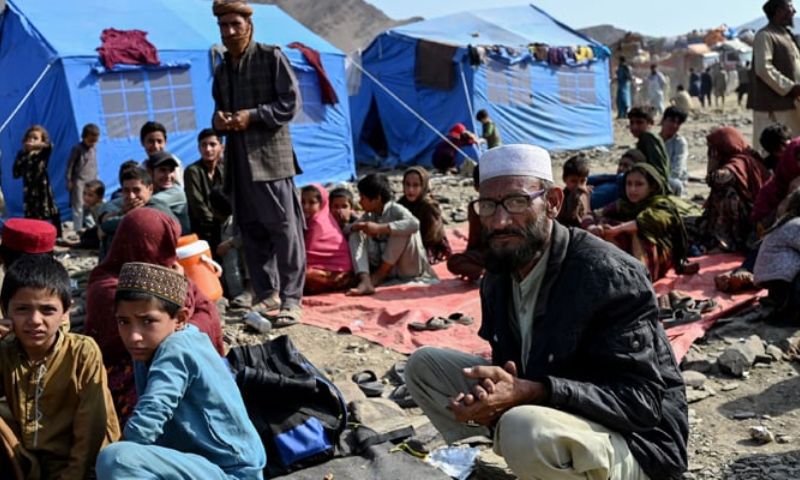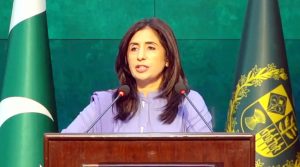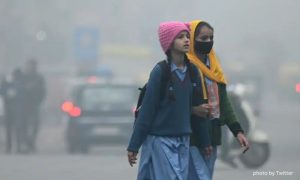The international media showered praises on Pakistan when the country extended the Proof of Registration (PoR) for one year by June 2025. But the decision was taken under the duress of the international community. This might have offset the concerns of international human rights organizations but the policy will have repercussions for the common Pakistanis. Despite growing rents for locals and increasing security threats from Afghanistan’s border, Pakistan’s decision to extend the date has not received the required praise in the international community except some statements by HR organizations. This shows a bizarre and uncerning attitude of international players who have been vocal in sloganeering for refugees’ rights worldwide.

Impact of Afghan Refugees on Pakistan
After the U.S. withdrawal from Afghanistan in August 2021, Pakistan witnessed a significant influx of Afghan refugees. The UNHCR estimated that around 300,000 Afghans fled to Pakistan in the immediate aftermath, adding to the existing Afghan refugee population. As of 2023, Pakistan hosts approximately 1.4 million registered Afghan refugees, making it one of the largest refugee-hosting nations globally. However, unregistered refugees increase this number, with estimates suggesting up to 2.5 million total Afghan refugees in the country. The majority of Afghan refugees reside in Khyber Pakhtunkhwa (58%) and Balochistan (23%), with smaller populations in Sindh and Punjab.
Approximately 75% of these refugees live outside official camps, integrating into urban areas where they face challenges related to employment, education, and access to basic services. The demographic composition of the refugee population is predominantly young, with over 60% under the age of 25. Despite efforts by the Pakistani government and international organizations, the socio-economic conditions for these refugees remain precarious. The prolonged stay of Afghan refugees has also strained Pakistan’s resources and infrastructure, leading to growing calls for international assistance and a sustainable resolution to the refugee crisis.
Pakistan has incurred significant financial losses in accommodating Afghan refugees over the decades, particularly following the U.S. withdrawal from Afghanistan in 2021. According to estimates, Pakistan has spent over $5 billion in direct costs related to the refugee crisis, covering essentials like food, healthcare, education, and security. The ongoing refugee presence has also led to indirect economic strains, including higher public expenditure on infrastructure and social services, as well as lost economic opportunities due to the diversion of resources.
Afghan Refugees and Socio-economic Challenges
The Afghan refugee crisis has had a profound impact on the daily lives of ordinary Pakistanis, particularly in regions like Khyber Pakhtunkhwa and Balochistan, where the majority of refugees have settled. The sudden influx of refugees has strained Pakistan’s resources, leading to various socio-economic challenges. One of the most noticeable impacts has been on inflation. The increased demand for essential goods, coupled with limited supply, has driven up prices, making it harder for local citizens to afford basic necessities. The housing market has also been affected, with a surge in rental prices due to heightened demand, especially in urban areas where many refugees have settled. This has made housing less affordable for lower-income Pakistanis.
Security concerns have also escalated, as the refugee influx has sometimes been linked, rightly or wrongly, to an increase in crime and militant activities. This has added to the already challenging security situation in Pakistan, leading to a heightened sense of fear and uncertainty among the population. In terms of health, the pressure on public healthcare facilities has increased, with more people needing services that are already underfunded and overstretched. This has resulted in longer waiting times, reduced access to quality care, and additional stress on local communities.
The economic burden has exacerbated ethnic tensions, especially in regions like Khyber Pakhtunkhwa and Balochistan, where the majority of Afghan refugees are concentrated. Local communities, particularly the Pashtun population, have often viewed the refugees as competitors for scarce resources, leading to resentment and social unrest. In Balochistan, the influx has intensified pre-existing ethnic fault lines between the Baloch and Pashtun communities, as many refugees share ethnic ties with local Pashtuns, further complicating the demographic balance in the region.
Human rights organizations have frequently highlighted the challenges and downsides associated with the presence of Afghan refugees in Pakistan. These concerns often revolve around issues such as the refugees’ living conditions, the denial of certain legal rights, and the occasional instances of harassment or deportation by authorities. While these criticisms are important, they tend to overshadow the considerable sacrifices Pakistan has made in hosting millions of Afghan refugees over the past four decades.
Pakistan has hosted one of the largest and longest-standing refugee populations globally, with over 1.4 million registered Afghan refugees and possibly an additional million unregistered ones. Despite its own economic challenges, Pakistan has provided asylum, access to healthcare, education, and basic services to these refugees, often with limited international support. The financial burden of accommodating such a large refugee population has been immense, costing the country billions of dollars over the years. This has strained public resources, infrastructure, and social services, impacting the lives of ordinary Pakistanis.
However, these sacrifices are often underrepresented in the narratives presented by human rights organizations. The focus tends to be on the negative aspects of refugee management—such as the lack of legal protections, the conditions in refugee camps, or the occasional forced repatriations—while the broader context of Pakistan’s generosity and the socio-economic toll it has taken on the country is frequently overlooked.
This imbalance in reporting can lead to a skewed perception of Pakistan’s role in the refugee crisis. While it is crucial to address the human rights concerns of Afghan refugees, it is equally important to recognize the sacrifices Pakistan has made, often at the expense of its own citizens’ welfare. A more balanced discourse would acknowledge both the challenges faced by refugees and the significant contributions Pakistan has made, despite its limited resources.























